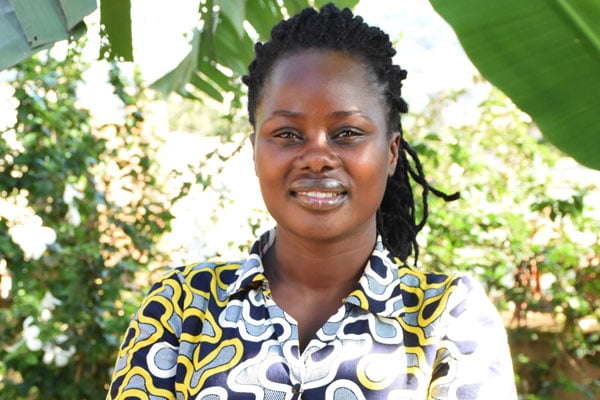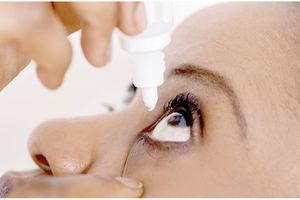
Husbands have a key role to play in fighting post-partum haemorrhage.
Photo | Shuttterstock.
Sajjabi lost his wife Madina to post-partum haemorrhage: “It was our first pregnancy. We were very expectant and excited having waited for five years without a child. Then after she gave birth, within one day, she developed complications that led her to bleed heavily until she died shortly after,” Sajjabi tells me, with pain written over his face, but with the anger of a lioness robbed of its cubs, “Michael, you have got to write about this!”
Post-partum haemorrhage (PPH) is a condition when a woman bleeds excessively after giving birth. It usually happens within one day (24 hours) of giving birth, but it can happen up to six weeks after having a baby.
In Uganda, PPH is the leading cause of maternal deaths. According to the WHO, 14 million women experience PPH each year resulting in 70,000 maternal deaths globally (or 25 per cent of maternal deaths).
Predisposing factors
• Placental abruption: The early detachment of the placenta from the uterus.
• Placenta previa: The placenta covers or is near the cervical opening.
• Over-distended (bloated) uterus: Excessive enlargement of the uterus due to too much amniotic fluid or a large baby, especially with birth weight over 4,000 grammes (8.8 pounds).
• Multiple pregnancy: More than one placenta and over-distention of the uterus.
• Gestational hypertension or preeclampsia. High blood pressure during pregnancy.
a. Having many previous births especially more than five.
b. Prolonged labour
• Infection
• Obesity: Studies in some places have shown that obese women have a twofold increase in the risk of major PPH compared to women with a normal BMI regardless of mode of delivery. This is because obesity can impair the soft or weak uterus after childbirth so the reproductive organ does not act quickly or well to contraction-inducing medications.
• Herbal medications to induce or quicken labour: These pose a major risk because their dosages are not known or moderated.
• Medications to stop contractions (for preterm labour)
Treatment for post-partum hemorrhage
Specific treatment for postpartum haemorrhage will be determined by a doctor based on:Your pregnancy, overall health, and medical history; extent of the Condition; your tolerance for specific medications, procedures, or therapies; expectations for the course of the condition and your opinion or preference.
Treatment of postpartum haemorrhage aims to find and stop the cause of the bleeding as quickly as possible. Treatment for postpartum haemorrhage may include:
• Medication (to make the uterus contract) and manual massage of the uterus (to stimulate contractions).
• Removal of any placental pieces that may have remained in the uterus
• Examination of the uterus and other pelvic tissues.
• Bakri balloon or a Foley catheter to compress the bleeding inside the uterus. Packing the uterus with sponges and sterile materials may be used if a Bakri balloon or Foley catheter is not available.
• Tying-off of bleeding blood vessels using uterine compression sutures
• Laparotomy: Surgery to open the abdomen to find the cause of the bleeding and stop it.
• Hysterectomy: Surgical removal of the uterus - in most cases, this is a last resort.
• Replacing lost blood and fluids is important in treating postpartum haemorrhage. Intravenous (IV) fluids, blood, and blood products may be given rapidly to prevent shock. The mother may also receive oxygen by mask.
What can husbands do to fight PPH?
Dr Jennifer Baluka recommends that husbands:
Encourage pregnant wives to attend antenatal care clinics regularly: This helps health workers identify the risk factors early and plan a safe pregnancy and delivery for the mother.
Attend antenatal clinic with their wives: Husbands benefit from this by way of getting educated on the danger signs of complications during pregnancy, labour, delivery, and after delivery and how to support their spouses when they occur. Samson, who was involved in his wife’s antenatal care visits says, “I never knew anything about pregnancy and birth until I started to visit with Brenda. We were taught different things that have educated me about maternal and child care. I no longer argue with Brenda over certain things now because I get to hear them firsthand from the medical personnel. I am now better for it. I highly recommend men go for these visits routinely with their partners. You can never stay the same.”
Encourage wives to attend post-natal care clinics after delivery to detect any complications early and manage them appropriately.
Ensure their pregnant wives take the treatment they are given during pregnancy: E.g. iron tablets, and anti-malarial drugs so that by the time of delivery they are in good health condition. John a truck driver says, “My wife is lazy when it comes to taking her medications and is also not so keen on eating healthily so I have been able to encourage her throughout our pregnancies. We have never had the issue of PPH, partly I think because I am very involved”, he boasts!
Birth preparedness
Prepare resources (logistics, funds, persons) for delivery in advance. Kasumba, a pastor at a church in Entebbe says, “I never prepared anything for our first child’s birth. For some reason, I kept thinking I had all the time in the world to come up with the money at short notice. I was careless. We were not prepared at all when she went into labour. We strangely pulled through. But since then, I resolved never to be that careless again. I have nine months to organise myself. Why in the world would I not be prepared?” Make arrangements for wives to have domestic support in managing the home, especially after delivery: It is common knowledge that after a woman gives birth, she will need extra support to look after the baby and herself. Some mothers may go to their mothers’ homes for this support or others may hire an extra hand to help with domestic chores.
Avoid sexual, domestic, and gender-based violence
Physical violence during pregnancy can lead to placental abruption which predisposes to PPH. In addition, violence against postpartum women is linked to emotional problems such as depression, distress, anxiety, post-traumatic stress disorder, etc. Women who are domestically violated during the first six months postpartum would likely end up with high rates of psychological child abuse, child neglect, and physical child abuse during the first five years of a child’s life (McGuigan & Pratt, 2001). To save their wives and children from these damning statistics, husbands should treat their wives with support, care, and respect.
In conclusion, husbands play a crucial role in preventing PPH in various ways laid down above. Thus men must be targeted and sensitised on this role in supporting their wives.
Quick note
Support wives to take on a family planning method as a couple after delivery so that they can fully recover from pregnancy and childbirth before the next conception to avoid unintended and closely spaced pregnancies. These are usually associated with maternal, newborn, and child morbidity and mortality. According to WHO, the recommended interval before the next pregnancy is 24 months. The husband’s knowledge of these facts is crucial in allowing this interval to happen.



